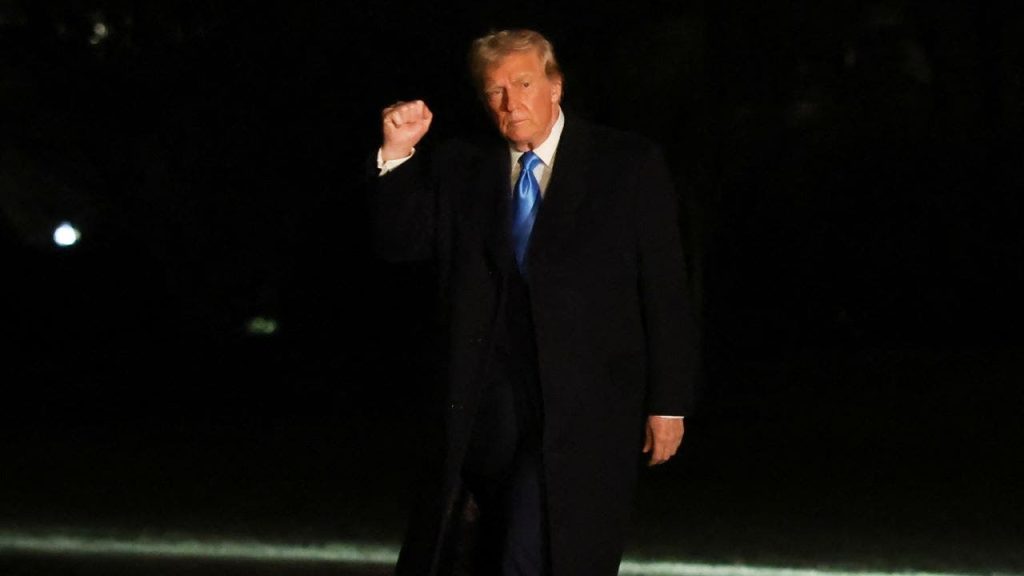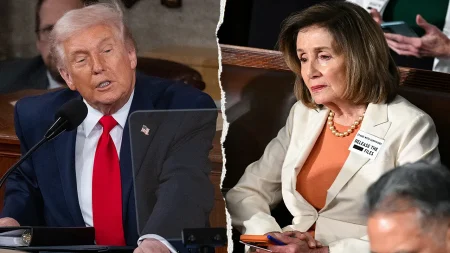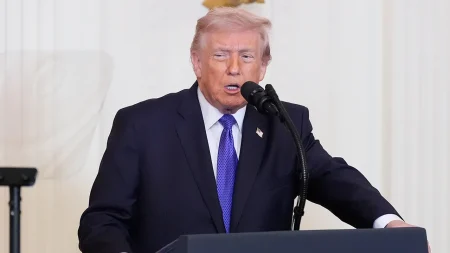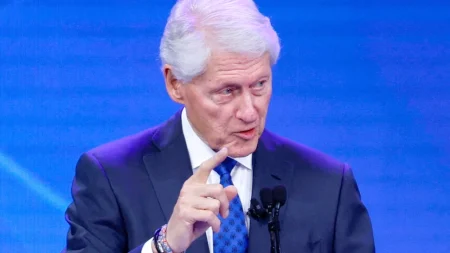President Trump’s imposition of tariffs on imports from Canada, Mexico, and China, justified under the premise of a national emergency stemming from illegal immigration and drug trafficking, has triggered a wave of international criticism and retaliatory measures. The President defended his decision, accusing Canada of unfair trade practices, including restricting access for American banks and agricultural products, while simultaneously benefiting from U.S. subsidies. He further hinted at similar tariffs targeting the European Union, citing a substantial trade deficit and their alleged refusal to import American cars and farm products. This protectionist stance underscores the Trump administration’s emphasis on recalibrating trade relationships to prioritize American interests, even at the expense of straining relations with key allies.
The core of Trump’s argument rests on the assertion that these countries are taking advantage of the United States through imbalanced trade arrangements. He claims that Canada, despite receiving significant financial support from the U.S., maintains restrictive trade barriers against American businesses and products. This perceived asymmetry, in his view, justifies the imposition of tariffs as a means to level the playing field and force these nations to renegotiate trade deals on terms more favorable to the United States. Similarly, his criticism of the European Union echoes this sentiment, highlighting the trade deficit and the perceived lack of reciprocity in market access. This protectionist approach reflects a broader trend in the Trump administration’s trade policy, prioritizing domestic industries and seeking to reduce trade imbalances through aggressive measures.
The international response to these tariffs has been swift and largely negative. Both Canada and Mexico have expressed strong disapproval, with their leaders publicly rebuking the Trump administration’s justifications and vowing to defend their own national interests. Mexico, in particular, has rejected accusations of complicity in drug trafficking and emphasized the need for collaborative efforts based on mutual respect and sovereignty. Canada, meanwhile, has encouraged its citizens to prioritize domestic products in a clear retaliatory move against the U.S. tariffs. These reactions underscore the potential for escalating trade tensions and the risk of further deterioration in diplomatic relations.
Beyond the immediate economic implications, the tariffs carry significant political ramifications. They represent a departure from traditional norms of international trade and cooperation, potentially undermining established alliances and multilateral institutions. The Trump administration’s willingness to employ such aggressive tactics reflects a broader shift towards unilateralism in its foreign policy, prioritizing bilateral negotiations and leveraging economic pressure to achieve its objectives. This approach has raised concerns among international partners about the stability and predictability of U.S. foreign policy, potentially leading to a fragmentation of the global trading system and heightened geopolitical uncertainty.
The President’s focus on South Africa adds another layer of complexity to this already intricate web of international disputes. His accusations of human rights violations and his threat to cut off funding to the country, while ostensibly unrelated to the trade tariffs, further illustrate his administration’s willingness to use financial leverage as a tool of foreign policy. This approach, while potentially effective in exerting pressure on specific countries, carries the risk of alienating allies and undermining long-term diplomatic efforts. It also raises questions about the consistency and objectivity of U.S. foreign policy, particularly when applied selectively to different nations based on seemingly disparate criteria.
In conclusion, President Trump’s imposition of tariffs on Canada, Mexico, and China, coupled with his threats towards the European Union and South Africa, signifies a significant shift in U.S. trade and foreign policy. This protectionist stance, driven by the goal of rectifying perceived trade imbalances and prioritizing domestic industries, has been met with widespread international criticism and retaliatory measures. The long-term consequences of these actions remain to be seen, but they have the potential to reshape global trade dynamics, strain international relationships, and further isolate the United States on the world stage. The escalating trade tensions underscore the challenges of balancing national interests with the need for international cooperation and the importance of finding sustainable solutions to complex global economic issues.














